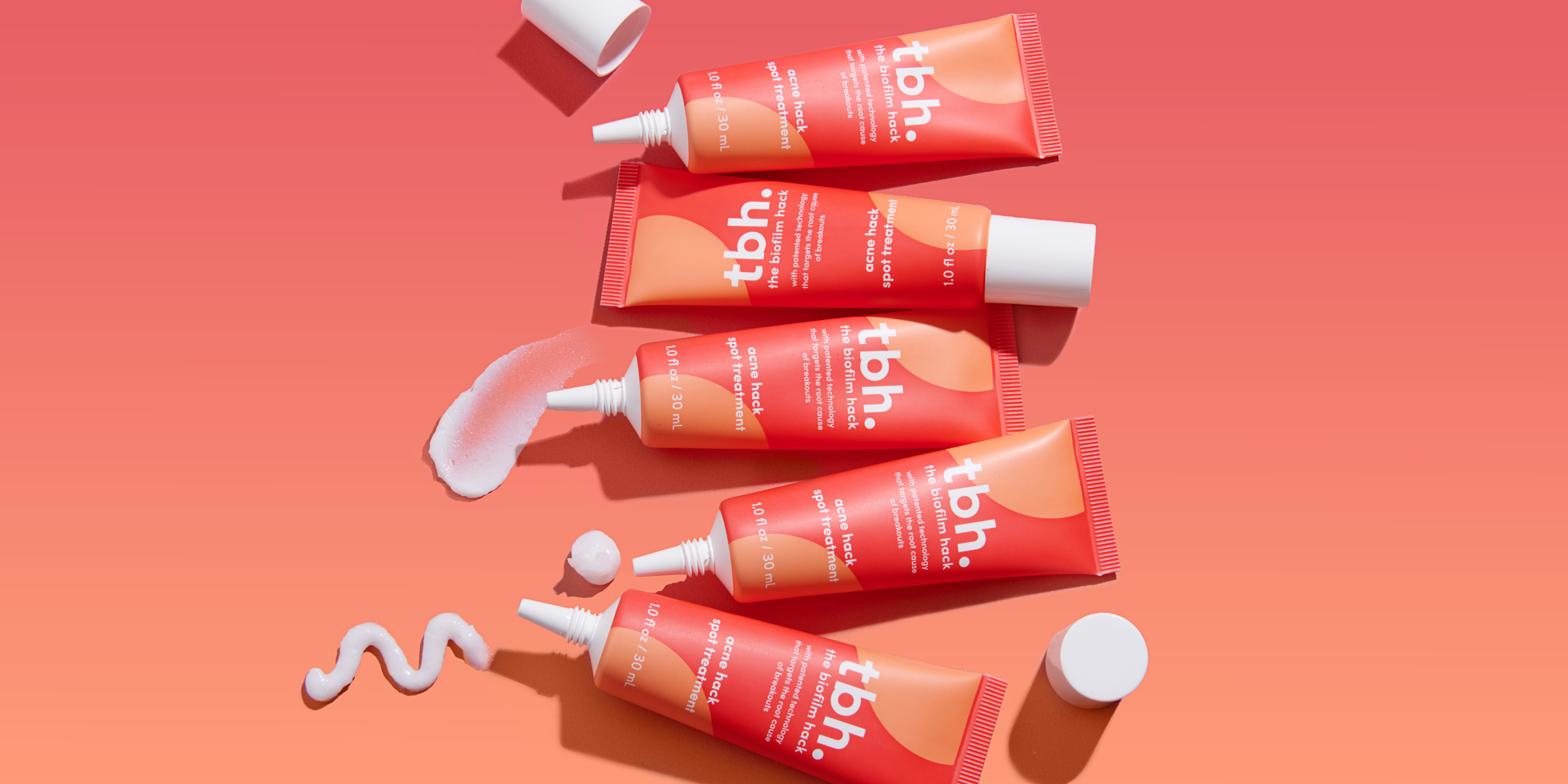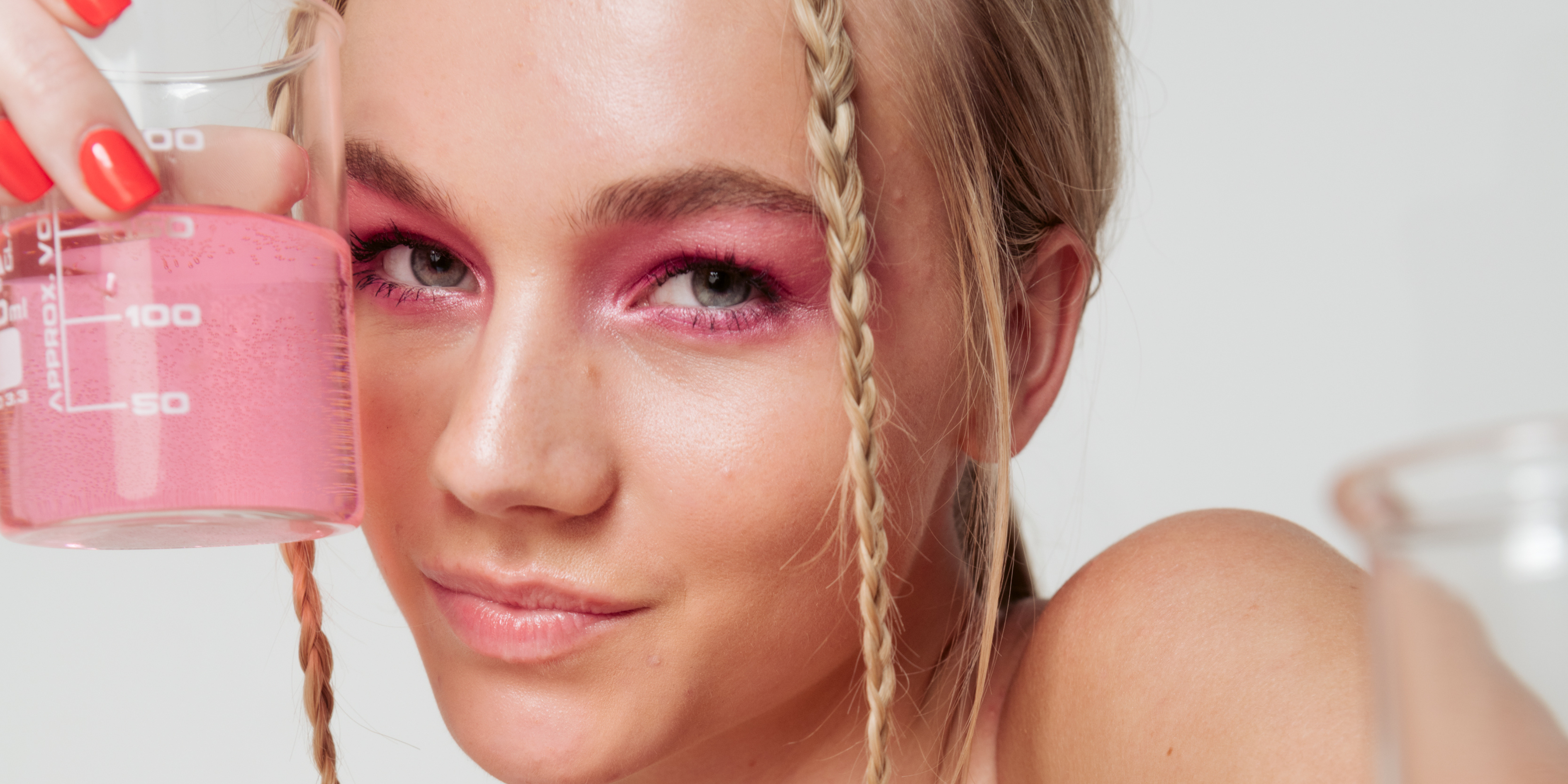Today, we're going all in on a topic that hits close to home for many of us: the relationship between acne and our mental health. Acne is a common skin condition that affects people of all ages. In fact, it’s so common that 85% of all humans experience it! And while it may seem like a purely physical issue, its impact on our mental well-being can be quite profound. So if you've ever wondered how acne affects your mental health or if you're dealing with acne-related anxiety or depression, we’re here to offer guidance, support, and some practical tips on how to cope with the emotional side of acne. Because you are most definitely not alone, bestie!

How does acne affect mental health?
Let's begin by tackling the main question: How does acne affect mental health? The truth is, it can have a significant impact on us, and flow into some fairly intense emotional challenges. If you’ve had acne in a major way, you’ll know exactly what we’re talking about. A 2008 study, which focused on the prevalence of acne in adults over 20, found that 73.3% of respondents to that particular study had experienced a form of adult acne. It’s also now known that around 85% of all humans will experience acne in their lifetime. Given how unbelievably common this skin condition is, it’s important to understand the impact of acne on our mental health. For reference, people with acne often experience:
Low self esteem
Acne has a way of making us question our self-worth and body image. It's not just about having a few blemishes here and there - it goes much deeper. That constant worry about how we look can lead to a relentless cycle of insecurity and self-doubt. Particularly in a TikTok world where it’s easier than ever to compare yourself to models and celebs. These struggles can manifest as an inner critic that feeds self-doubt, a comparison trap that sets unrealistic standards (mindless scrolling, we’re looking at you), and negative self-talk that slowly erodes our self-esteem. It’s truly heartbreaking the impact our skin can have on how we view ourselves, and it’s important to watch our habits and try to be our own best friends here.
Anxiety
Acne and anxiety often come as a package deal, creating a pretty complex emotional experience. Acne can trigger feelings of anxiety about our appearance. Acne is visible by its very nature, which tends to make us self-conscious, and we can start fixating on how others perceive us. This constant worrying about how we look can be seriously anxiety-inducing, affecting our self-esteem and overall confidence.
You may also notice acne having an impact on your social life. Having a rough experience with acne can sometimes lead to social anxiety, making it challenging to get out and socialise. The fear of judgement, receiving unsolicited comments, or the fear of having all eyes on you can start tempting us to avoid social situations or even everyday outings.
Dealing with acne can also lead us down a rabbit hole of not-so-great habits. We might find ourselves constantly poking and prodding at our pimples or spending way too much time inspecting our skin in the mirror. These behaviours can actually worsen acne and leave us feeling even more anxious than before. It’s so important to remember during times like this that we are our own harshest critic, and will be looking at ourselves far more closely than other people ever are. A reminder again, that if 85% of all humans experience acne at some point, there’s no reason to hide out! Acne doesn’t make you ugly - it’s more normal than you think, bestie!
Depression
For many, dealing with acne isn't just about managing a few blemishes; it's the constant psychological burden of worrying about our skin. It’s no secret that struggling with acne can lead to profound feelings of sadness and, in some cases, even depression. If you’re dealing with never ending thoughts and a general listlessness and sadness that won’t go away, we’d love to steer you to our friends at ReachOut Australia, who have a tonne of support and advice available to you while you navigate your acne journey. It’s a safe place to chat anonymously, get support, and help you feel better.

Coping Strategies for Acne-Related Mental Health Issues
Engage in mindfulness and relaxation rituals
Healthy habits are your friend if you’re struggling with acne - they can make a huge difference to your day to day mental health. Try incorporating some mindfulness practices and relaxation techniques into your daily routine. Things like meditation, deep breathing exercises, and even a bit of yoga can work wonders in lowering stress levels and keeping anxiety at bay! We promise this one is seriously worth a try.
Exercise!
Exercise plays a dual role by reducing stress, which can help prevent acne breakouts, while also improving self-esteem and body confidence. Exercise also releases mood-enhancing endorphins, which can help combat the feelings of sadness or depression often associated with acne-related issues. We don’t mean to sound annoying, but the whole ‘go outside for a walk!’ thing really does have its merits for lowering stress and improving your mood!
Socialise with friends
Spending time with friends offers valuable emotional support and a comfortable space to talk about your acne-related concerns. While it’s sometimes tempting to withdraw and avoid socialising when you’re really going through the acne valley, seeing people you love is a holiday for your mind from constantly thinking about acne, which can lift your spirits and make you feel less isolated. Plus, the positive vibes and laughter during these moments release endorphins that help reduce stress, another great reason to remember to get out and about.. So, don't forget to schedule in some quality friend time - it can make a real difference when dealing with acne-related mental challenges!
Reach Out - to ReachOut!
As we mentioned above, our friends at ReachOut Australia are an amazing place to go when you’re really struggling with your mental health. They have a tonne of support and advice available to you while you navigate your acne journey. It’s a safe place to chat anonymously, get support, and feel better. This tip is so good, we mentioned it twice.
Develop a tailored skincare routine
A skincare routine that’s tailored to your acne-prone skin can help give you a sense of control over your skin, and this can ultimately reduce anxiety and feelings of helplessness. This daily or nightly self-care ritual not only enhances self-esteem but also gives you knowledge about skincare products that are crucial in improving your overall skin health. It’s also just a lovely self-care moment to start and end the day with.
If you have acne and are looking to create an effective skincare routine, here’s what we suggest:
Step 1: Cleanse
If you're dealing with breakouts, our suggestion is to cleanse your skin gently and with care! Opt for a cleanser specifically for acne-prone skin and use it twice daily - both in the morning and before bed. We highly recommend incorporating our anti-bacterial cleanser into your routine. It's specifically designed to combat breakout causing bacteria and clear away any unwanted congestion without drying out your skin. (Important!)
For more info on how to properly cleanse your skin, read here.
Step 2: Use a spot treatment
Using a spot treatment will help you target individual pimples as well as prevent the spread of acne-causing bacteria. We strongly suggest incorporating our acne hack spot treatment into your routine. It uses patented technology to effectively clear blemishes, eliminate congestion, and proactively prevent future breakouts. Once you've cleansed at night, gently apply the spot treatment directly onto any active breakouts. Give it approximately five minutes to fully absorb before finishing off your skincare routine.
Step 3: Apply your serums
After spot treating, apply your thinnest products first - your serums. Serums have a multitude of benefits that can help reduce inflammation, balance oil production, minimise pore size or strengthen your skin's barrier. We recommend incorporating our rebound serum into your skincare routine both in the morning and at night. This is a barrier support serum that effectively reduces redness and soothes angry or damaged skin.
Step 4: Moisturise!
Having acne might lead you to think that using a moisturiser is unnecessary and could even make your acne worse. This is completely untrue! In fact, moisturiser is essential for maintaining the skin's natural barrier, preventing excessive dryness caused by acne treatments, and balancing oil production. Our suggestion is to apply a 10-cent-sized amount of a simple, lightweight moisturiser both in the morning and at night. Consider our thirst trap moisturiser, which effectively hydrates the skin with a blend of glycerin, pentavitin, sodium PCA, and genencare. It also provides essential barrier support through the inclusion of pentavitin, amino acids, squalane, apricot kernel oil, jojoba esters, olive oil, and vitamin E.
Step 5: Apply SPF
As we all know, sun exposure can trigger inflammation and damage the skin, potentially causing or worsening breakouts. If you have acne-prone skin, choose an SPF that is oil-free to avoid clogging your pores, just like our skin shady SPF 50+ it feels incredibly light, isn't greasy, and is exceptionally gentle on your skin, even if you're prone to breakouts (YAY!).
To learn about what skincare ingredients work well together for acne, read here.

Seek professional help
If you find that your acne is severely impacting your mental health, don't hesitate to seek help from a dermatologist or a mental health professional. They can provide expert guidance and treatment options tailored to your needs.
Remember that you don’t need to struggle in silence. For mental health advice and support, you can head to our friends at ReachOut Australia any time.
Acne and mental health are undoubtedly interconnected, so it's important to understand that tackling mental health issues related to acne is a process. There will be highs and lows, but with the right support from family and friends, a mindset about self-love, and self-care rituals, you've got what it takes to navigate this journey!


















